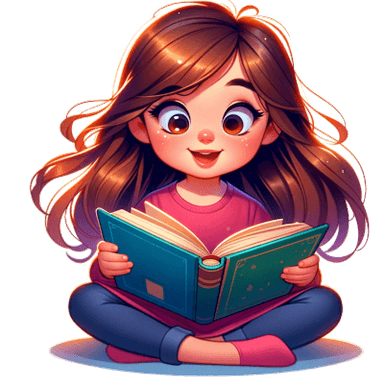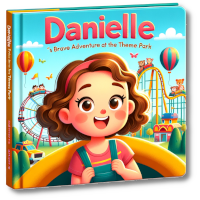Reading with children
a blog by Magic Tales

Unlocking Courage: Understanding the Power of Bravery in Children’s Literature
Adventures, beasts, and magic galore! We all remember reading brave tales before bedtime, ones filled with courageous warriors or heroic children who loved beating the odds. In fact, bravery—a pervasive theme throughout children’s literature—has shaped and influenced many a young heart. But, have we ever taken a step back and deciphered the psychological relations between the theme of bravery in children's books and their influence on young readers? In this journey, we intend to do just that.
Preparing for life
Children's literature is often the first instance when children are introduced to numerous life situations, including hardships, tragedies, and the importance and concept of courage. Authors disguise these serious undertones of bravery in fantastical adventures or suspenseful tales, easing young minds into the understanding of bravery and its significance in life.
How literature represents bravery
Children’s literature often narrates stories of characters—like wizards, adventurers, or even everyday kids—who are caught in tricky situations and face challenging decisions. And it's through this journey that they showcase bravery, choosing to do what’s right over what’s easy. These scenarios become the stepping stones for children to fathom the depths of courage and bravery. The bravest characters in children's literature often embody traits like resilience, resourcefulness, and kindness, putting them in a hero's seat.
Effects on a child's mindset
'Reading is dreaming with eyes wide open' - the anonymous quote marks the interesting interrelationship between children’s literature and the impacts it has on young minds. Whether it's 'Harry Potter' braving the evil Lord Voldemort or 'Matilda' standing up against her authoritarian parents, these narratives help children understand the psychology of bravery, encouraging empathy, promoting moral reasoning, and fortifying their mental resilience. They also help children in recognizing their courage, empowering self-confidence—one story at a time.
The role of the Caregiver
As a parent, teacher, or caregiver, it is vital to discuss the themes of bravery and courage with your children. Coupled with such vivid examples from their favorite books, these conversations can enrich the child's understanding, assisting them in relating these acts of bravery to their real-world experiences.
Conclusion
Beyond the exciting adventures and captivating characters, children’s literature is a powerful tool that helps children understand complex concepts like bravery. So, on your next visit to the bookstore, look for a tale of courage for your brave little hero—it might be the most valuable lesson you could ever give them.
Want a personalized book to read with your child about Bravery?
Takes as quickly as 30 seconds to create
Create a book about Bravery

